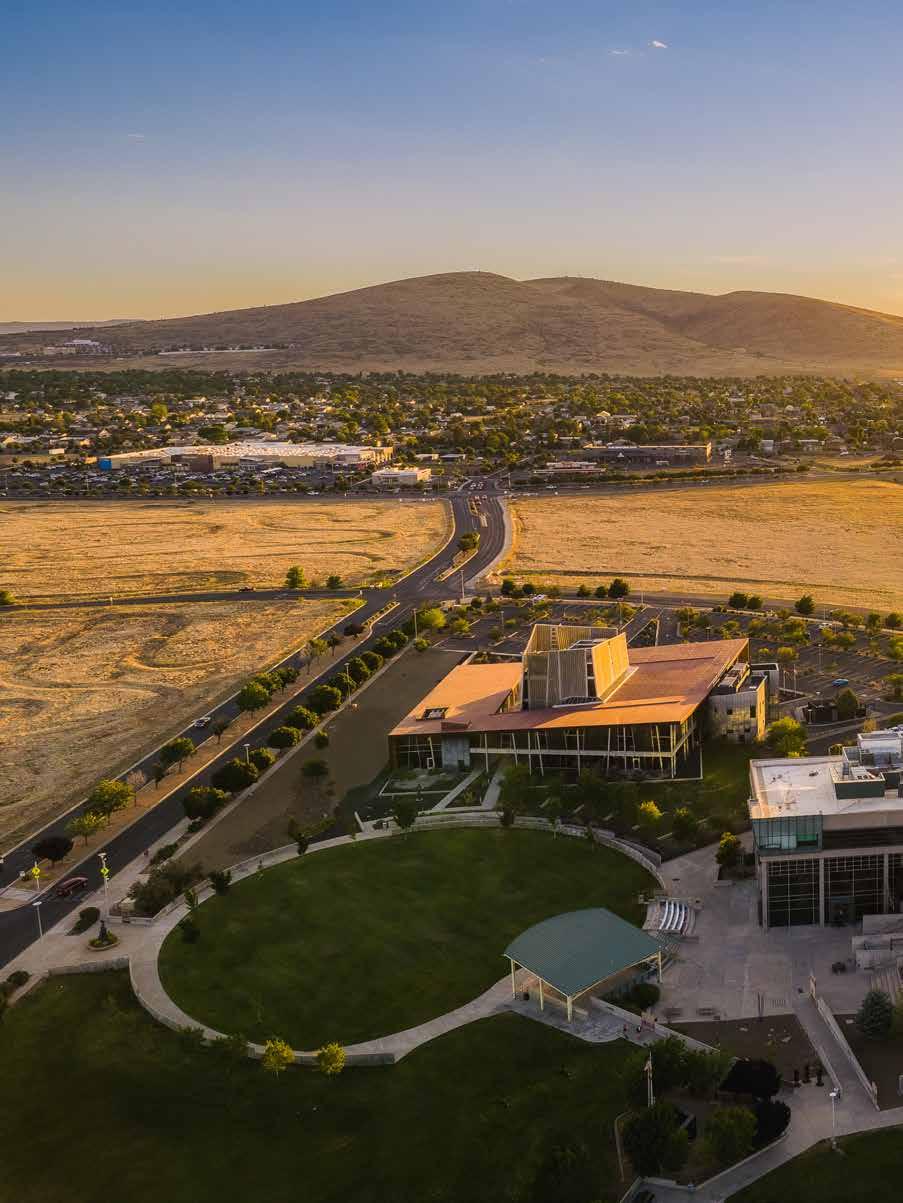
3 minute read
Highlands Center for Natural History
Photo by Nancy Maurer
How about a walk in the woods…

The story of the Highlands Center for Natural History, Prescott’s Nature Center, begins on a lush, wooded, 22acre biologically diverse site among ancient boulders.
In the early 1970s, far-sighted community members and Prescott Unified School District leadership recognized the value of outdoor science-based education and created the Community Nature Center. Members of the Youth Employment Program built a log cabin, and the dream for the Center grew. Sadly, in 1989, after 13 years of operating, the gates closed. But the idea of an outdoor classroom where students of all ages could learn about the natural world, particularly that of the Central Arizona Highlands, was too good to let go. The center’s first director Nichole Trushell, together with a band of supporters and volunteers, reshaped the nature center and forged the way toward the center’s future. In November 1995, after many, many meetings with good baking and much coffee, the Highlands Center for Natural History was incorporated, and the search for a new site began.
Photo by Blushing Cactus Photography

… or stroll along the creek through Learning Circles illustrating the natural history of the Central Highlands…

In April of 2001, a special use authorization gave the Highlands Center permission to establish operations on a beautiful 80-acre parcel in the Prescott National Forest for a 25-year term. By partnering with the Prescott National Forest, the center had created a special partnership between a governmental agency and a private nonprofit.
Even though there were no buildings on the site, it was immediately used for educational purposes with several programs making use of the new site. The campus opened to the public in 2004 (trails, restrooms and Kiwanis Amphitheater). In January 2007 staff moved into their new offices, The James Learning Center, and life as we now know it began.

With this prime location on Lynx Creek near the Lynx Lake Recreation Area, the Highlands Center was poised to meet the needs of a rapidly growing region. With a
Photo by The Highlands Center

Photo by Nancy Maurer

Photo by Blushing Cactus Photography

Gold Certified LEED building and experienced staff, the center was perfectly placed to provide education and recreation for residents and visitors of Central Arizona. In 2021 more than 30,000 visitors throughout the country enjoyed the Highlands Center.
…Bring the kids and play on the boulders, sand box and web in a natural Forest Play area…
Currently the center serves over 10,000 children a year through onsite school programs, nature camps and off-site at our Schoolyard Habitats. Onsite programs include school field trips for grades K-5 and a preschool program called KneeHigh Naturalists. Nature camps for preschool through middle school students include sessions in the fall, spring and summer. The Schoolyard Habitat program takes the mission directly to schools at school-site native plant gardens and outdoor classrooms.
Special events and programs include Discovery Saturdays throughout the year, the Grow Native! Plant Sales in late spring and early fall, Plein Air Art Festival in October, Shakespeare in the Pines in June, and Community Nature Studies Series seasonally.
In 2021, the Highlands Center launched a chapter of the Arizona Master Naturalist Program for the Central Highlands and hosts an annual certification course.
…Listen to birds and sounds of the forest or relax in the shade on a comfortable bench.
In 2017 we opened the James Family Discovery Gardens. The goal of the gardens is to make nature more accessible to everyone. The Discovery Gardens also are a regional botanical garden, interpreting the unique biological habitats of the Central Arizona Highlands.
The Discovery Gardens are also one of the few fully ADA accessible outdoor spaces in Yavapai County.
Over the years the Highlands Center has continued to expand and grow while adhering to its core mission of an outdoor classroom where students of all ages could learn about and explore the natural world.

Lynx Lake Photo by Martha Court











